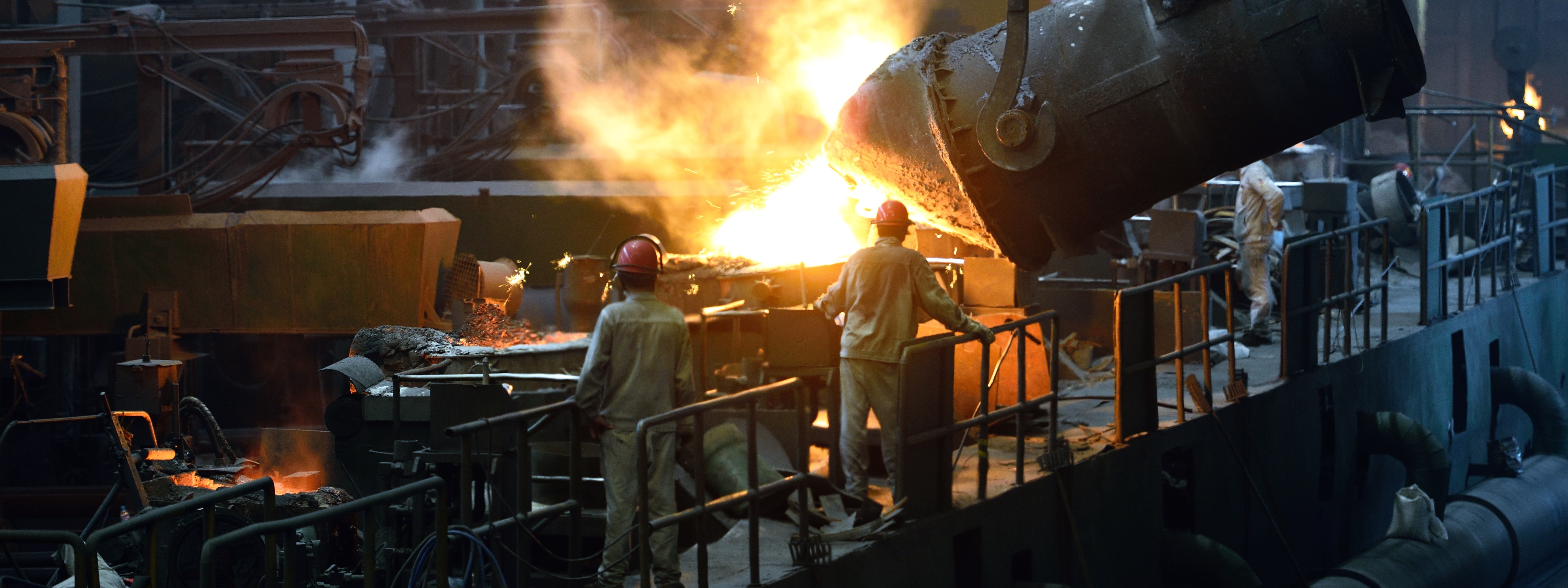Steel is needed everywhere in our everyday life – from buildings and infrastructure to cars, household appliances and telecommunication networks. At the same time, steel production is one of the biggest polluters in the world, as its current production methods rely heavily on fossil coal. To halt global warming under the 1,5-degree limit, an industry-wide transformation in production methods is urgently needed.
Investments are needed to implement low-emissions technology
In 2019, steel production caused approximately 7 to 9 percent of global greenhouse gas emissions and 28 percent of all industrial emissions. The good news is that technologies for low-emission steel production are available. Frontrunner steel companies are already leading the change by implementing low-emissions production technology and making investment plans to reach emissions reduction goals. One way to show leadership is to commit to the Science Based Targets initiative (SBTi).
To save our planet and its living conditions, it is important to carry out a global technology transformation throughout the whole steel sector. Significant investments are needed already during the 2020s to restrain global warming under the 1.5-degree limit. The global steel sector is at a crossroads, and now’s the time to leverage the momentum and make the right decisions.
Effective emissions reductions through science-based targets
Science Based Targets initiative (SBTi) is a global body enabling businesses and financial institutions to set ambitious emissions reduction targets in line with the latest climate science. WWF is one of the founders and partners of SBTi, together with Carbon Disclosure Project (CDP) and the United Nations Global Compact, World Resources Institute (WRI).
SBTi is helping steel companies to understand and implement the level of climate ambition required to meet the Paris Agreement. WWF Finland wants to support the success of SBTi by engaging key stakeholders of steel sector to SBTi, especially in northern Europe.
Low-emissions steel production benefits all
Steel Sector transformation will have substantial positive effects on the planet, civil society, and businesses:
-
Huge impact for the climate and our living conditions
Transitioning from carbon-intensive production methods to low-emission production will reduce global greenhouse gas emissions substantially. WWF is acting to make the change possible. We urge companies to set science-based targets.
-
Business advantages for companies
Steel sector decarbonization can offer significant advantages not only for steel producer companies, but for the energy sector and all those companies that have steel playing some role in their value chain. Demand for green steel is growing rapidly.
-
Avoiding risk investments and supporting a just green transition
By helping the steel sector to build pathways towards low-emission production, financial institutions and investors can avoid substantial risks, such as long-term carbon lock-in, future stranded assets, endangering jobs and putting any 1.5C-compatible pathway out of reach.
Join our network!
Cooperation is needed to make the Steel Sector transformation possible. WWF Finland wants to speed up the steel sector’s change and help all stakeholders move forward together. Political decision-makers, companies, financial sector and NGOs need to work together to tackle the challenge.
Please do not hesitate to contact us if you are interested in discussing steel decarbonization issues!


The new SBTi iron & steel sector guidance – pros outweigh cons
The updated SBTi corporate level target setting tool helps the iron and steel sector players to create and adjust their strategies to effectively address the climate crisis, writes Bernt Nordman, head of climate program at WWF Finland.

The new SBTi iron & steel sector guidance – pros outweigh cons

WCEF2023 Accelerator Session: The role of scrap in steel sector decarbonization
Scrap steel and iron play a major role in decarbonizing one of the most polluting industries in the world – the steel industry. How can the availability of scrap be secured in the future? What incentives are needed to promote circularity in the steel sector? Please join us in our session at the World Circular Economy Forum 2023 in Helsinki, as we will analyze the opportunities and challenges related to increasing the use of scrap in steel production.

WCEF2023 Accelerator Session: The role of scrap in steel sector decarbonization

Genuine green steel or greenwashing? Common labeling rules are needed to benefit the climate and business
Current methods of green steel labeling are confusing due to a lack of standardization and complexity in environmental impact assessments. How should labeling be developed to ensure sufficient emission reductions, customer trust and fair competition?

Genuine green steel or greenwashing? Common labeling rules are needed to benefit the climate and business

Effective tools for steel sector decarbonization
Strategies change the future. Strategies of large corporations have a big impact. Today the steel sector is causing 7-9 percent of all GHG-emissions and the global production of steel is projected to grow substantially in the coming decades. Therefore, it is vital that corporate strategies are informed by climate science.


